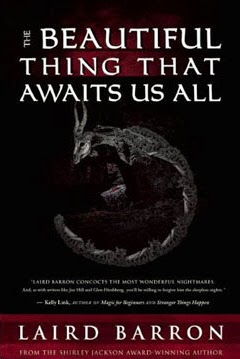Noli Me Tangere 5th Edition By Maria Odulio De Guzman Family
German addresses are blocked - www.gutenberg.org Your IP Address is Blocked from www.gutenberg.org We apologize for this inconvenience. Your IP address has been automatically blocked from the address you tried to visit at www.gutenberg.org. This is because the geoIP database shows your address is in the country of Germany.
If you installed Ubuntu or a similar Linux distribution like Linux Mint with Wubi, you’ll have an easy uninstaller. Just boot into Windows, open.


Diagnostic information: Blocked at germany.shtml Your IP address: 88.99.2.89 Referrer URL (if available): Browser: Mozilla/4.0 (compatible; MSIE 6.0; Windows NT 5.1; SV1) Date: Saturday, 12-Jan-2019 06:50:26 GMT Why did this block occur? A Court in Germany ordered that access to certain items in the Project Gutenberg collection are blocked from Germany. Project Gutenberg believes the Court has no jurisdiction over the matter, but until the issue is resolved during appeal, it will comply. For more information about the German court case, and the reason for blocking all of Germany rather than single items, visit.
For more information about the legal advice Project Gutenberg has received concerning international issues, visit How can I get unblocked? All IP addresses in Germany are blocked.
This block will remain in place until legal guidance changes. If your IP address lookup is incorrect Use the to verify status of your IP address. Project Gutenberg updates its listing of IP addresses approximately monthly. I have other questions or need to report an error Please email the diagnostic information to help2018 @ pglaf.org (removing the spaces around the @) and we will try to help. Adjustment of the blocking software in early 2018 has resulted in some 'false positives' -- that is, blocks that should not have occurred. If that happened to you, please let us know so we can keep adjusting the software.
Apologies if this happened, because human users outside of Germany who are making use of the eBooks or other site features should almost never be blocked. Most recently updated: April 2, 2018.
ABSTRACT The Philippines is now a nation of one hundred million people who live in seven thousand one hundred islands and speak one hundred seventy languages including Spanish, English and Chinese. Literary translation in the various languages of the islands is a significant activity that creates cultural linkages among the diverse language and ethnolinguistic groups. There are now literary translations from Philippine indigenous languages to the major languages – Filipino (the Tagalog-based national language) and English. Tranlations of transcribed texts of ethnoepic poetryfrom non-Tagalog speaking communities ( e.g.
Ifugao, Ilokano, Manuvu, etc.) to Tagalog and English conjure a supernatural miraculous culture signifying an expansive literary imagination among the indigenes. The literary translation of Jose Rizal’s works into the English, Tagalog and the major ethnolanguages of the country contributes to creating a Rizal saga which is one journey Filipinos undertake in their quest for nationhood. In this light, literary translation brings Philippine communities closer and in harmony rather than fragmentation. Filipinos, because they are separated into ethno- linguistic communities in several island groups, appear to be divided and disintegrated. The translated texts however reveal otherwise.
These literary texts metaphorically embark the Filipinos in their primal balangay (or barangay, the indigenous river vessel) to go from port to port in every island and discover stories, myths, legends, poetry and song which illuminate the Filipino’s character and disposition. This journey’s destination can only be toward spaces where national identity and global recognition can be achieved. Keywords: literary translation, translation acts, ethnoepic poetry, enabling miraculous culture, the Rizal saga, cultural convergence, metaphorical river journey, national identity, global Filipino diaspora Introduction The literary translation of indigenous Philippine folktales, legends, myths, ethno- epics and other narratives has been predominantly bilingual, i.e., from Tagalog or Ilokano, or any other Philippine language into English, or Spanish or any other foreign language and vice versa. This has been the dominant translation practice and the main translation act for literary texts in the islands for centuries since Spanish colonization. In 1983, with support from the ASEAN (Association of Southeast Asian Nations) Committee on Culture and Information, literary translations into English of five of the over one hundred Philippine epics was completed and published as the Anthology of ASEAN Literatures: Epics of the Philippines (1983, Castro, et. Al.) A version in Filipino, Antolohiya ng mga Panitikang ASEAN: Mga Epiko ng Pilipinas was also published (1984, Castro et. Al) These volumes begin what I believe is a significant practice in the translation of Philippine literary texts from bilingual to trilingual and/or multilingual. Libro masaje deportivo pdf.